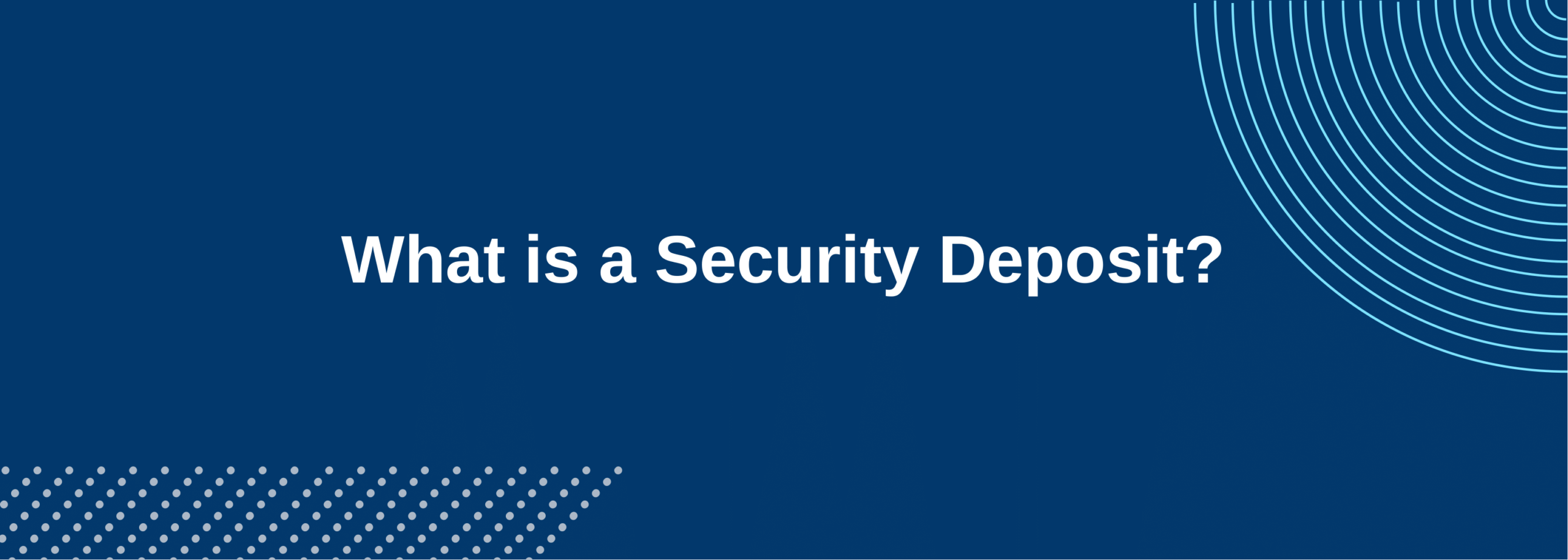According to Investopedia, a security deposit “is money that is given to a landlord, lender, or seller of a home or apartment as proof of intent to move in and care for the domicile.” Security deposits can be refundable or nonrefundable, depending on the terms of the lease, and they serve as a measure of security for the landlord or property owner. If the tenant damages the rental unit or stops paying rent, the security deposit can be used to pay the landlord back.
Investopedia goes on to say that state laws vary regarding where a security deposit is held, such as in a separate banking or escrow account, and whether it must collect interest.
How Does a Security Deposit Work?
Typically, a security deposit is paid before move-in, and it’s usually the same amount as the monthly rent. It can be used toward any repairs or appliance replacements in the rental unit if the damages were caused by the renter (or the renter’s guests).
If the lease indicates that the security deposit is refundable and the rental unit is in reasonably good shape (i.e, only shows signs of typical wear and tear), the money is usually refunded upon the tenant’s departure.
Investopedia explains that “security deposits are not considered taxable income, and local laws often treat security deposits as trust funds.”
Protect yourself from security deposit disputes with a condition report, which helps to keep record of the property with each tenant. TurboTenant allows you to customize, send, and store condition reports – totally online, within your account.
Are Security Deposits Required?
Landlords aren’t required to collect a security deposit, though it’s highly recommended. Knowing that their deposit is at stake is enough incentive for most tenants to keep the rental unit in good shape.
That said, some landlords who feel extremely confident about their tenant’s screening report and background check may decide not to collect a security deposit.
If you’re on the fence about whether or not to require a security deposit, consider allowing your tenant to apply that money to their last monthly rent payment, assuming local laws permit it. Investopedia notes that “security deposits used as final rent payments must be claimed as advance rent and are taxable when paid.”
When is the Deadline to Return a Security Deposit?
Check your state’s laws to determine your specific deadline, but landlords generally have between 14-60 days after the tenant vacates the unit to make any deductions and return the security deposit.
After you’ve assessed the apartment for damages, made repairs, and calculated any unpaid rent or fees, you must notify the tenant in writing regarding any deductions you make to their security deposit. Some states require you to provide receipts for any repairs to ensure the tenant knows you’re calculating the deductions fairly and accurately.
Generally, security deposits are returned via mail in the form of a check, so be sure to get your tenant’s new address when they move out.
What Are the Alternatives to a Security Deposit?
Moving into a new rental property can be expensive, especially when considering the amount of upfront fees your tenant might have to pay. As such, some landlords allow other options to enable excellent potential tenants to move in without draining their bank.
Three such options include:
- Lease insurance
- A surety bond
- A pay-per-damage agreement
Take a deeper dive into the concept of security deposits with our comprehensive blog.

